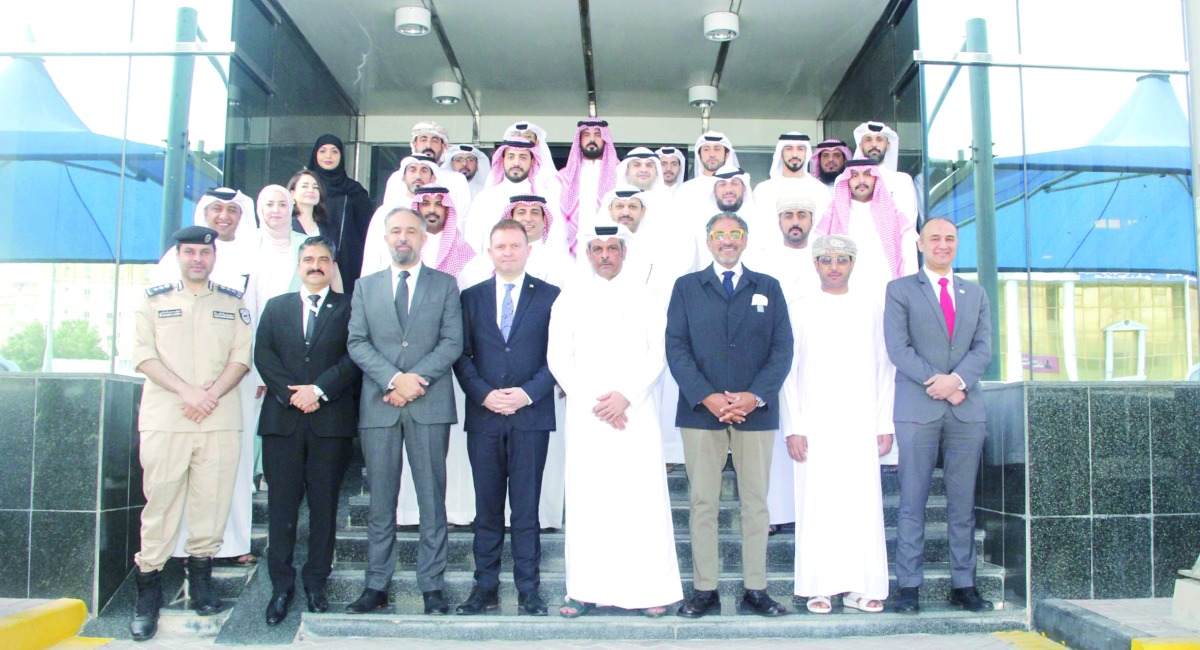A specialized training course in the field of cybersecurity and its link to drug crimes for officers of the anti-drug agencies in the Gulf Cooperation Council (GCC) countries recently concluded in Doha. The course was organized by the Doha-based GCC Criminal Information Center to Combat Drugs (GCC-CICCD), in cooperation with the Police Academy, the United Nations Office on Drugs and Crime (UNODC), and the UN Global Program on Cybercrime. At the conclusion of the training, Director of the GCC-CICCD Brig. Gen. Issa Saeed Zayed Al Kuwari emphasized the importance of enhancing regional and international cooperation in combating drugs, and raising the capabilities of those working in this field.
The Director stressed the necessity of exchanging information and expertise in combating drugs, as new methods and techniques in manufacturing and smuggling narcotics constantly emerge. He highlighted the importance of the partnership agreement between the UNODC and the GCC General Secretariat, noting that the GCC-CICCD plays a vital role in implementing the agreement. Regional Director of the UNODC Dr. Hatem Ali also emphasized the significance of the partnership, expressing pride in the extended collaboration with the GCC General Secretariat and the GCC-CICCD.
The partnership aims to support and develop the capabilities of the center and its officers in member states to combat criminal gangs involved in drug manufacturing and smuggling. The training program focused on essential topics such as the Internet, computer concepts, communication protocols, search techniques, and national legal frameworks for combating cybercrimes and drug trafficking. Participants also learned about using artificial intelligence to investigate data sources and ways to combat drug promotion through cyberspace.
Dr. Hatem Ali underlined the importance of regional cooperation in addressing challenges related to electronic drug promotion and the illicit trafficking of narcotic drugs. He pointed out the valuable contributions of the Doha United Nations Regional Centre for Combating Cybercrime in reducing criminal activities in this area. The course aimed to enhance the capabilities of center officers and member states in the Arabian Gulf to detect, track, and prevent the increasing use of cyberspace and the dark web for drug promotion.
The training course was designed to address the evolving landscape of drug crimes and their connection to cybersecurity, equipping officers with the necessary knowledge and skills to effectively combat these crimes. Participants were exposed to various topics such as the national legal frameworks of GCC countries, national legal frameworks for combating cybercrimes, and artificial intelligence for investigating data sources. Through the partnership between the UNODC and GCC, the GCC-CICCD continues to play a crucial role in promoting regional cooperation and enhancing the capabilities of officers in combating drug-related crimes.
In conclusion, the specialized training course in cybersecurity and its link to drug crimes for anti-drug agencies in the GCC countries provided valuable insights and knowledge to participants. The course emphasized the importance of regional and international cooperation in combating drug crimes and the need to exchange information and expertise in this field. Through partnerships with organizations like the UNODC, the GCC-CICCD continues to enhance the capabilities of officers in member states to effectively combat the manufacturing and smuggling of narcotics. By equipping officers with new methods and techniques to address cyber-related drug crimes, the training program contributed to achieving the noble goal of protecting societies from the dangers posed by criminal gangs involved in drug trafficking.











